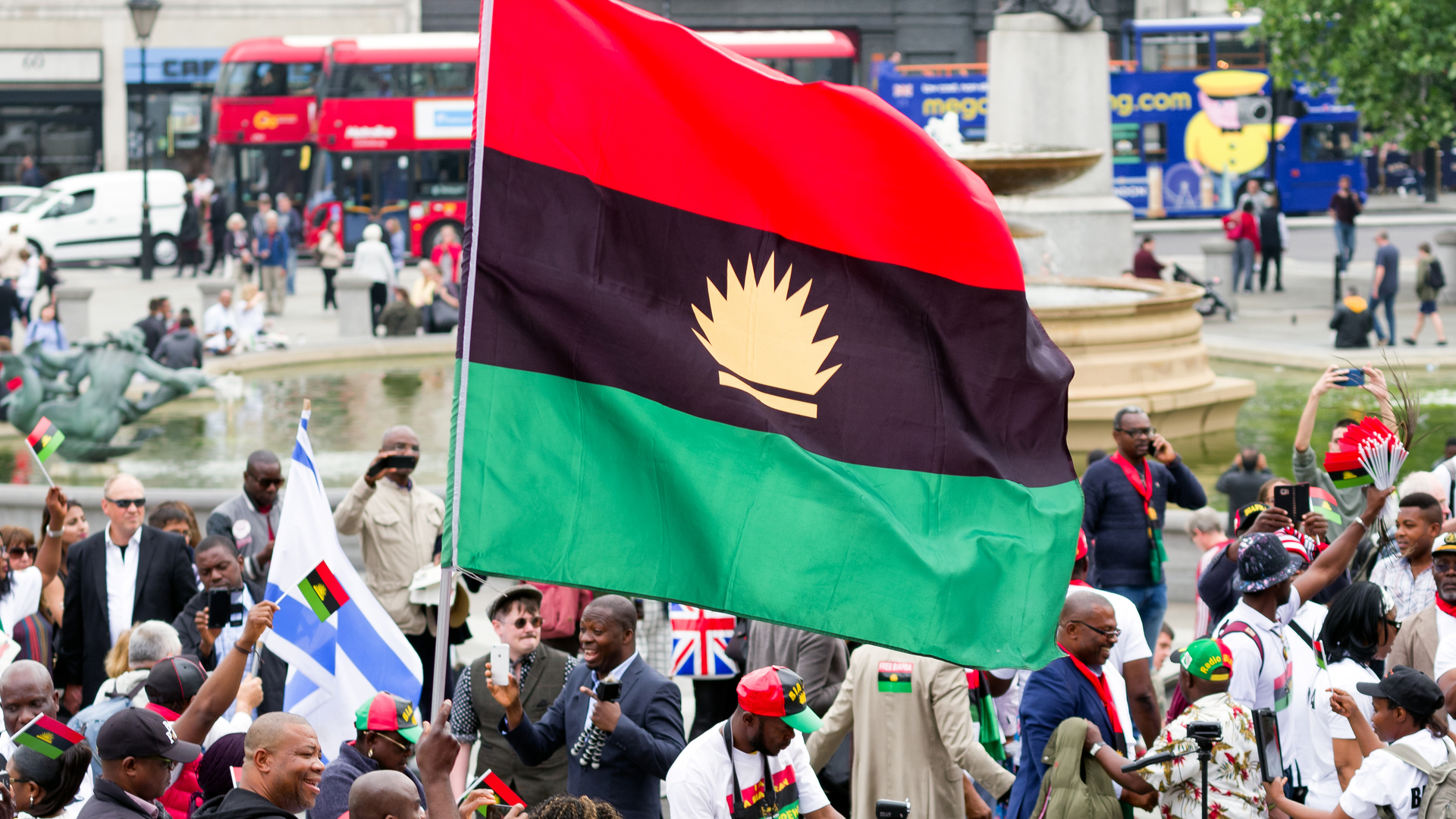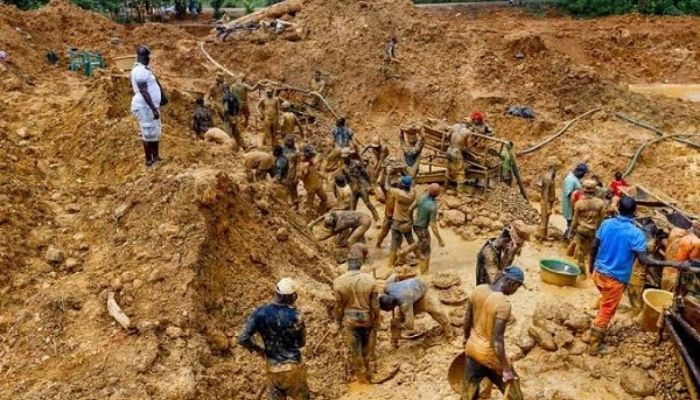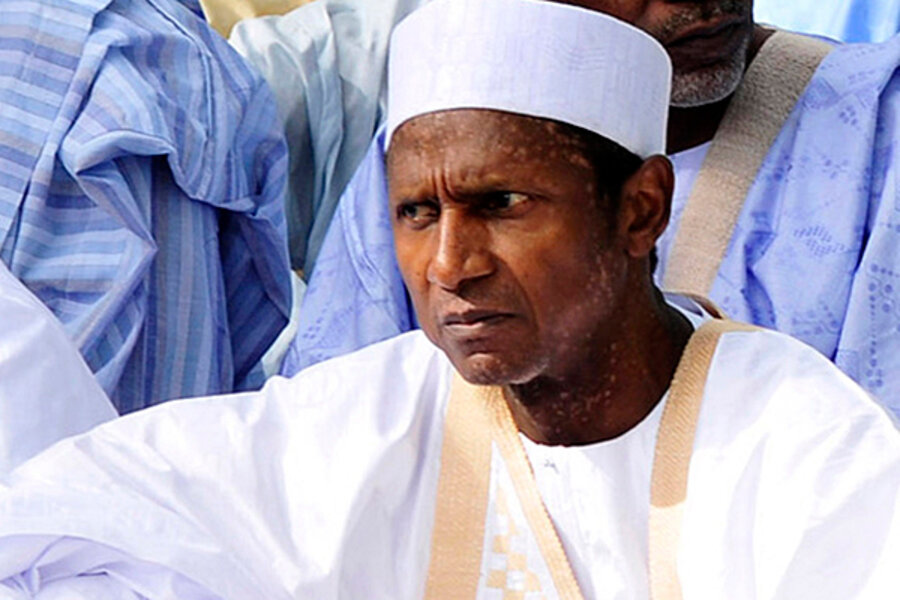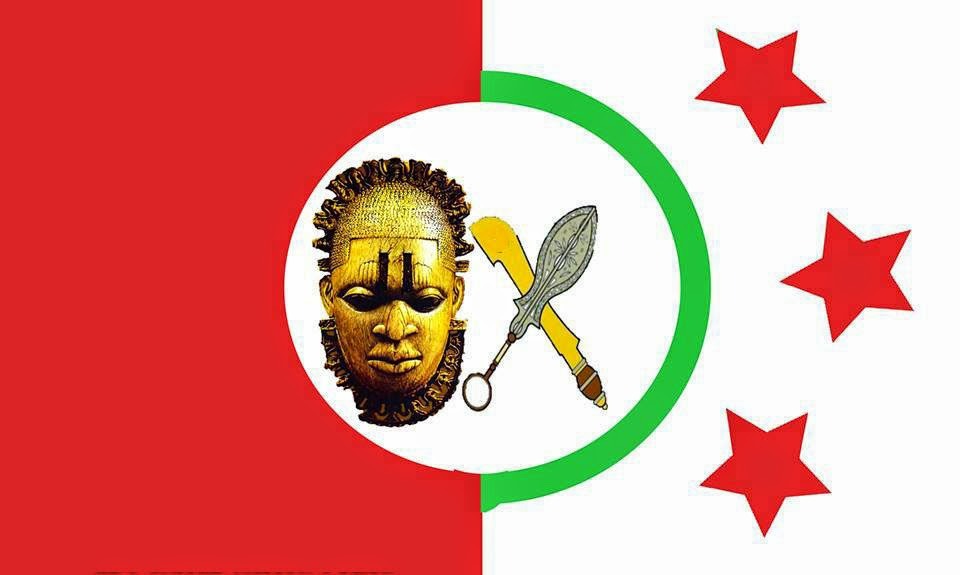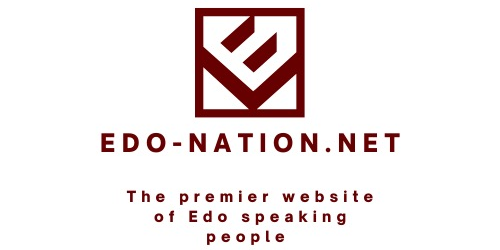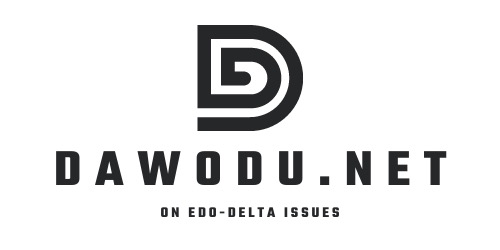culled from VANGUARD, August 10, 2005
Recently, the Paris Club announced a "debt treatment" for Nigeria. Subject to Nigeria’s ability to fulfill certain stipulated conditions, the club has promised to write-off about $18bn of the $31bn owed by Nigeria to the club. Without taken a honest of the conditionalities stipulated by the Paris Club before the promised debt write-off can be effected, government spokespersons across the country have been heaping praises on President Olusegun Obasanjo’s government for having secured a wonderful debt reprieve.
We in the Democratic Socialist Movement (DSM) argue that this so much orchestrated "debt pardon" is in actual fact, a deepening debt strangulation or a second slavery disguised as debt pardon. Contrary to the false propaganda being dished out by government spokespersons and liberal commentators that Nigeria has secured a debt write-off of $18bn by the Paris Club, the truth of the matter is the very opposite. What the Paris Club did was no more than an agreement "in principle" to write-off this amount provided Nigeria is able to fulfill certain conditionalities announced by the club. Amongst other things, Nigeria must be prepared to cough out immediately a sum of $6bn representing what the club terms as arrears of unpaid principal and interest on the $31bn said to be owed by Nigeria to the club in the past 6 years. Secondly, "Nigeria must secure approval from the IMF boards for its economic reforms and submit itself to continuing economic monitoring". (Financial Times, London July 1, 2005).
Thirdly, Nigeria must agree to "buy back the remaining $8.25bn it owes at a "discounted market rate". (Guardian, London July 1, 2005) No succour but socio-economic disaster. Far from bringing any succour, these conditionalities severally and collectively will only bring greater socio-economic doom for Nigeria in the immediate and long term periods. In fact what is being celebrated as debt relief is nothing short of second slavery. The Paris Club expected Nigeria to be paying over $2bn annually as capital and interest repayment on its loans. But so bad has been the state of economy for the past six years that Nigeria has only been able to repay about $1bn annually. Even, this was being done at a very huge price in terms of mass poverty, destroyed educational and health system within the framework of a virtual collapse of all social infrastructure, a situation which has rendered any hope of a sustainable economic activity a mirage.
But now, under the guise of "debt pardon", Nigeria is expected to cough out $6bn at a go! If paid, this will spell absolute disaster for the economy and the living standard of the people both now and in the long run. In response to this point, government spokespersons have maintained that nothing is wrong if we use all the cash we have now to once and for all offset the debt bondage. They insist that this is the best way to revamp Nigeria’s chronically sick economy. To say the least, this is totally an uninformed perspective. Firstly, this crude economic reasoning is built on the false assumption that crude oil prices internationally will always be advantageous to Nigeria. Two, it is a position that totally condemns the overwhelming majority of the working people to perpetual life of misery.
Right now, Nigeria’s foreign exchange reserve is put at about $24b. Outwardly, this might give the impression of a financially buoyant country. But against the background of mountains of mass poverty that envelopes the land, against the background of decayed, inadequate and non-existing necessary social infrastructures, this sum is grossly inadequate to begin to struggle to meet the basic needs of the economy and that of the working people. To tackle the problems of mass poverty, mass unemployment, and the collapsed educational and health sectors, decayed and inadequate infrastructure like electricity, roads, communication, housing, education and health care, Nigeria needs massive investment in today’s condition worth tens of billion of dollars.
Unfortunately, the proposed "debt treatment" will not bring any new money into the economy. On the contrary, the little that has been realised from crude oil sales will be raided by the Paris Club under the guise of "debt write-off".
The other tragic aspect of this so-called debt pardon is the conditionality that demands a commitment by Nigeria to continue with the current capitalist, neo-liberal policies of privatisation and deregulation of key sectors of the economy and major resources of the society.
Through this policy, Nigerian government must continue to sell-off all its key sectors of the economy and major resources to capitalist individuals and corporations all which are either owned by international capitalist corporations and or their local collaborators, at under valued prices! In addition, all social services and basic needs of man are to be guaranteed on the basis of ability to pay for same. In this respect, submission to "continuing monitoring" by the IMF renown for its anti-poor policies is tantamount to sentencing the vast majority of the working people to a life of permanent misery in the midst of inexhaustible abundance. The third conditionality states that the sum of $8.25bn will be paid through what the Paris Club dubbed as "buy back at a discounted market rate". To say the least, this is a very provocative conditionality.
First and foremost, the point should be stressed that Nigeria and other so-called debtor nations have, over the years, paid more than three times the amount of money originally borrowed from the so-called creditors. But now, capitalist politicians like Tony Blair and others want to give an impression of Africa as a continent always in distress and which now needs special financial debt relief. The truth of the matter however is that the imperialist countries like UK, US etc had always extracted more resources from Africa than what they ever gave.
For instance, James K Boyce and Leone
Ndikumana, in an economic survey published on July 2, 2003 by Bangkok Post found that between 1970 and 1996, 30 sub-Sahara African countries had a total sum of $274bn taken out of their economies to the western economies, an equivalent of 145% debt owed by those countries. Since, 1992, Nigeria has not taken any additional loan from the Paris Club. Between 2000 and 2005, the country has made a total debt repayment of $6.9b. But in accordance with the usurious mathematics of International finance capital, the country’s debt profile in the same period increased by $7.5b. The more you pay, the more you still owe!
Earlier this year, Hon. Farouk Lawan said "It is unquestionable that Nigeria has paid £3.5bn in debt service over the past two years but our debt burden has risen by £3.9bn without any new borrowing. We cannot continue. We must repudiate this debt." (Guardian, London, 26/4/05) Consequently, the "buy back" of Nigeria’s so-called remaining debt at "discounted market rate", in plain language is asking Nigeria to mortgage its economic and natural resources as payment in kind for loans which, for whatever they were worth, had been over repaid. It is estimated that at least another $6 billion will be required for the debt buy back. This simply implies that altogether at least a huge sum of $12 billion will be taken away by the Paris Club from Nigeria, which has been claimed to be in dire need of heavy investment in the social and real sectors, under the guise of debt relief! ‘‘Debt-free’’ Nigeria is desirable, but this ‘‘debt deal’’ is not. The debt problem is no doubt a big problem for Nigeria and the masses' living conditions.
Annually, a huge sum of money is expected to be paid to the creditors. Over the years, this has been used by various capitalist governments as the main reason why governments could not guarantee basic necessities of life for the vast majority of the working masses. Therefore, any deal or package which promises to make the country "debt-free" is a welcome idea. However, on the basis of the strangulating conditionalities explained above, Nigeria or any other country subjected to this kind of "debt treatment" will sooner go about borrowing than imagined. Even while still swimming in the false ocean of a non-existing "debt pardon", and at the same time raising a false hope of a "debt-free" Nigeria, President Olusegun Obasanjo himself has been forced to admit that within the framework of the global capitalist system, Nigeria can never get out of the debt trap.
Hear him, "We will continue to borrow from the international institutions like the International Monetary Fund (IMF) and World Bank to finance projects that are profit-oriented and beneficial to the people". (The Guardian, Sunday July 10, 2005). Nigeria Minister of Finance, Dr. Ngozi Okonjo-Iweala, while still receiving her salary in US dollars, has been waxing eloquent on the debt deal issue. In her simplistic calculation, once this deal is concluded, Nigeria will stop spending about $1b annually for debt repayment and consequently, be in a position to pay attention to vital socio-economic needs. The youth and the working class elements must not be deceived by this claim because it is very reductionist and one sided.
This line of reasoning gives the false impression that the mass poverty among the majority of the working people is primarily caused by the debt burden. In truth however, the debt burden itself is a product and manifestation of corruption ridden neo-colonial capitalist system which presently operates in Nigeria. For instance, Nigeria is said to have realised over $300bn from oil sales alone between 1960 and 2005 but most of this collective wealth has only ended up in the profit covers and private pockets of capitalist corporations and individuals internationally and nationally with only little actually spent on developing the economy and living standard of the people. Meanwhile, there are facts showing that around 10 of past and present leaders that have used their positions to loot Nigeria’s treasury can between themselves repay Nigeria’s total external loan currently estimated at $36bn. According to a World Bank report, just 1% of Nigerians controls 80% of resources while the rest 99% struggle to share the rest 20%.
It should therefore be stressed that it is the self-serving nature of capitalism and the endemic corruption by the Nigerian ruling class that originally led to the borrowing issue. Tragically, but quite in line with capitalism’s nature, the overwhelming proportion of these loans could not be justifiably accounted for. According to Mansur Muhtar, Director, Debt Management Office in the ThisDay of March 13, 2005, only 2% of the project for which the loans in issue were procured could be described as successful. 15% a bit functional, 60% total failure, while 10% of the loan never reached the project site! Against the above background, it is therefore simplistic to argue that once Nigeria is "debt-free", better living will automatically come the way of the working masses. Going by the relative high price of crude oil in the international market for almost all of the past 6 years, Nigeria has been able to make a lot of unexpected money. Right now, the country’s external reserve is put at about $24bn. Tragically however, both the quantity and quality of life for the vast majority of the working people in the same period has taken an absolute plunge downwardly.
DEBT TRAP - SOCIALIST ALTERNATIVE IS THE WAY OUT
Nigeria, potentially, is a very rich country. On the basis of its natural and human resources, there is no basis for the current mass poverty that dominates the country. But under capitalism, the overwhelming majority will forever remain in misery and continue to die of curable diseases in order to assuage the insatiable profit greed and prestige of a few capitalist corporations and individuals. "Just over 500 rich individuals, overwhelmingly men, the owners of the large transnational companies, have as much income as three billion people, half the world’s population" (Peter Taaffe, General Secretary, Socialist Party (the British section of the Committee for a Workers International (CWI) in the edition of The Socialist 30 June 6 July, 2005). To therefore get out of imperialist capitalist induced debt trap, and have basic needs guaranteed for all, Nigerian working masses and the working masses of the world will first have to strive to overthrow capitalism and replace same with socialist system under workers and poor peasants’ government. The central economic content of this revolution will be the nationalisation and public ownership of the key sectors of the economy and major natural resources under the democratic control and management of the working masses themselves.
Under a socialist economic arrangement, production of goods and provision of services will be primarily based on the needs of the entire people not profit for a few as under the present unjust capitalist arrangement. Right now, a lot of resources and people are wasting because the profit consideration of the capitalists could not harness and utilize them to provide jobs and meet the needs of the people. In a socialist arrangement where every economic issue and decision are being democratically decided by elected representatives of working masses themselves, it will be very much easy to wipe out unemployment and make everybody contribute to the wellbeing of all and not just a few.
But it must be stressed that only a government formed on this basis can call the bluff of the Paris Club and other international capitalist slave masters by not only outrightly repudiating the unjust debt they are using to keep Africa down but in fact, fighting for economic reparations for slavery, colonisation, neo-colonialism, debt trap etc which Africa and its people in the diaspora have been subjected to for centuries.
Consequently, we in the DSM demand and fight for: total cancellation of Africa’s debt stock with no strings attached;· repatriation of all Africa’s stolen wealth stashed in foreign banks by the corrupt pro-West leaders; Africa’s resources to be totally committed to guarantying food, housing, health care, education, decent jobs, etc to the African masses; a mass working for peoples' party with the genuine socialist programme; a workers' and poor peasants’ government;· public ownership of all the commanding heights of economy and main resources of nature firmly placed under the democratic management and control of the working people themselves; or a united democratic socialist confederation and, when possible, Federation of African countries in a world socialist order.
•Segun Sango is the General Secretary of Democratic Socialist Movement




